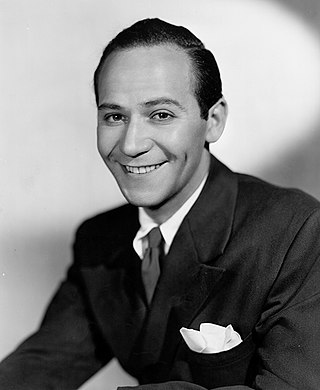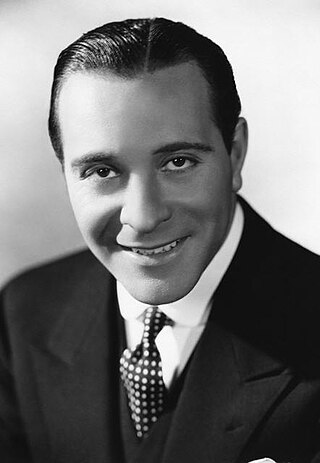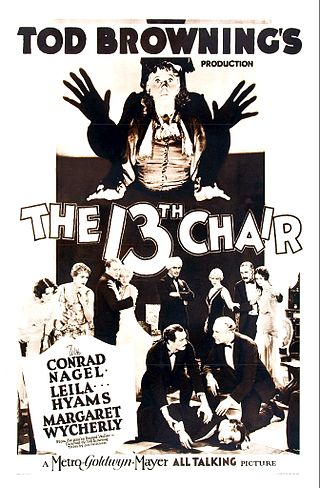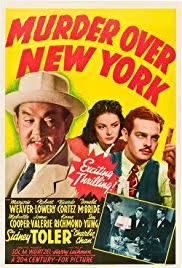Plot summary
Bill Davis is a federal postal inspector. When he returns home to Milltown from a business trip in Washington, D.C., he meets singer Connie Larrimore on the plane. When they land, Bill is met by his brother Charlie, who is already acquainted with Connie.
At a nightclub owned by Gregory Benez, where Connie sings, Charlie and Connie hear about a shipment of $3 million in retired currency being scheduled. Benez, who is heavily in debt, schemes with a man named Ritter who has recently lost money as a victim of possible mail fraud.
A flood in a nearby town affects the shipment's route. Charlie goes to the scene with the National Guard and is aided by Connie, who volunteers as a relief worker. Benez and his accomplices rob the shipment. Charlie is in love with Connie and quarrels with his brother when Bill asks if she told Benez about the cash shipment. A speedboat is used to head off the thieves, Benez is sent to prison and Charlie invites his brother to his wedding to Connie.

Béla Ferenc Dezső Blaskó, known professionally as Bela Lugosi, was a Hungarian–American actor, best remembered for portraying Count Dracula in the 1931 horror film classic Dracula, Ygor in Son of Frankenstein (1939) and his roles in many other horror films from 1931 through 1956.

Glen or Glenda is a 1953 American independent exploitation film directed, written by and starring Ed Wood, and featuring Wood's then-girlfriend Dolores Fuller and Bela Lugosi. It was produced by George Weiss who also made the exploitation film Test Tube Babies that same year.

William Henry Pratt, known professionally as Boris Karloff and occasionally billed as Karloff the Uncanny, was an English actor. His portrayal of Frankenstein's monster in the horror film Frankenstein (1931), his 82nd film, established him as a horror icon, and he reprised the role for the sequels Bride of Frankenstein (1935) and Son of Frankenstein (1939). He also appeared as Imhotep in The Mummy (1932), and voiced the Grinch in, as well as narrating, the animated television special of Dr. Seuss' How the Grinch Stole Christmas! (1966), which won him a Grammy Award.

This is a list of notable events in music that took place in the year 1950.

Frank Henry Loesser was an American songwriter who wrote the music and lyrics for the Broadway musicals Guys and Dolls and How to Succeed in Business Without Really Trying, among others. He won a Tony Award for Guys and Dolls and shared the Pulitzer Prize for Drama for How to Succeed. He also wrote songs for over 60 Hollywood films and Tin Pan Alley, many of which have become standards, and was nominated for five Academy Awards for best song, winning once for "Baby, It's Cold Outside".

Mark of the Vampire is a 1935 American horror film, starring Lionel Barrymore, Elizabeth Allan, Bela Lugosi, Lionel Atwill, and Jean Hersholt, and directed by Tod Browning. A series of deaths and attacks by vampires brings the eminent expert Professor Zelen to the aid of Irena Borotyn, who is about to be married. Her father, Sir Karell, died from complete loss of blood, with bite wounds on his neck, and it appears he may be one of the undead now plaguing the area.

Bela Lugosi (1882–1956), best known for the original screen portrayal of Bram Stoker's Dracula in 1931, performed in many films during the course of his 39-year film career. He appeared in films made in his native Hungary, Germany and New York before re-locating to Hollywood in 1928. Films are listed in order of release.

The Gorilla is a 1939 American comedy horror film starring the Ritz Brothers, Anita Louise, Art Miles, Lionel Atwill, Bela Lugosi, and Patsy Kelly. It was based on the 1925 play of the same name by Ralph Spence.

Invisible Ghost is a 1941 American horror film directed by Joseph H. Lewis, produced by Sam Katzman and starring Bela Lugosi.

Ricardo Cortez was an American actor and film director. He was also credited as Jack Crane early in his acting career.

Frankenstein Meets the Wolf Man is a 1943 American horror film directed by Roy William Neill and starring Lon Chaney Jr. as Larry Talbot and Bela Lugosi as Frankenstein's monster. The script, written by Curt Siodmak, follows The Ghost of Frankenstein and The Wolf Man, though with a number of retcons. Most significantly, Talbot only transforms into werewolf form during a full moon, which became a standard part of werewolf lore. The film involves Larry Talbot, who is resurrected when his tomb is disturbed. His search for a way to end his seeming immortality leads to his befriending Frankenstein's monster.

Revolt of the Zombies is a 1936 American horror film directed by Victor Halperin, produced by Edward Halperin, and stars Dean Jagger and Dorothy Stone. One of the earliest zombie films, it was initially conceived as a loose sequel to the director's moderately successful White Zombie (1932) but, due to a lawsuit, was unable to promote itself as such.
"Ain't Misbehavin'" is a 1929 stride jazz/early swing song. Andy Razaf wrote the lyrics to a score by Thomas "Fats" Waller and Harry Brooks for the Broadway musical comedy play Connie's Hot Chocolates. As a work from 1929 with its copyright renewed, it will enter the American public domain on January 1, 2025.

Yellowstone is a 1936 American crime film set in Yellowstone National Park, directed by Arthur Lubin and released by Universal Studios.

Special Agent is a 1935 American crime drama film directed by William Keighley and starring Bette Davis and George Brent. The screenplay by Laird Doyle and Abem Finkel is based on a story by Martin Mooney. The film was produced by Cosmopolitan Productions and released by Warner Bros.

Patricia Ellis was an American film actress from 1932 to 1939, who then had a brief singing career until 1941.

The Thirteenth Chair is a 1929 American mystery film directed by Tod Browning. The picture is based on a 1916 play of the same name by Bayard Veiller. It stars Conrad Nagel, Leila Hyams and Margaret Wycherly.

Behind Office Doors is a 1931 pre-Code American drama film directed by Melville W. Brown, from a screenplay by Carey Wilson and J. Walter Ruben, based on Alan Schultz's 1929 novel, Private Secretary. It starred Mary Astor, Robert Ames and Ricardo Cortez, and revolved around the premise of "the woman behind the man". While not well received by critics, it did well at the box office.

Murder Over New York is a 1940 American mystery film directed by Harry Lachman and starring Sidney Toler as Charlie Chan. The cast also features Marjorie Weaver, Robert Lowery and Ricardo Cortez. Chan must solve a murder mystery while attending a police convention. Shemp Howard plays "Shorty McCoy" in an uncredited appearance.
Irving Actman was an American conductor, musical director and composer. He is known for his work in film and on Broadway musicals, most notably as the music director of the original 1950 production of Guys and Dolls.


















